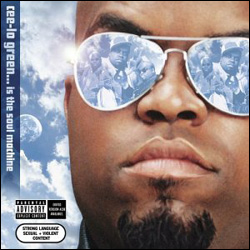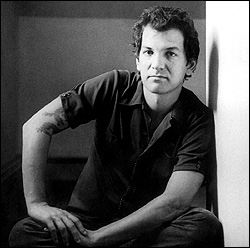Like David Murray and Matthew Shipp, Dave Douglas makes albums the way folks did in the ’60s: often. Since January ’04’s straight-ahead Strange Liberation for RCA/Bluebird, Douglas has returned to independents with a pair of chamberlike outings. Last fall’s Bow River Falls is a collective-improv session that slowly works its way under your skin. The new Mountain Passages introduces Nomad, Douglas’ umpteenth band, and marks the debut of his new label, Green Leaf Music.
The music on Mountain Passages was first performed at a music festival held in the Dolomite Alps of Northern Italy. Listened to in alpine terms, the album seems divided between lofty elegies and cheery hiking ditties, plus a stately introductory waltz that splits the difference. Douglas is ever keen on tweaking conventional instrumentation and blurring the lines between jazz and New Music. Nomad features Peggy Lee on cello, Marcus Rojas on tuba, Dylan van der Schyff on drums, and Michael Moore on clarinet, bass clarinet, and alto sax (on which he solos sumptuously during “Family of the Climber”). The quintet’s arty circus tunes can evoke Henry Threadgill or Tom Waits, but the album is closer in spirit to Douglas’ Charms of the Night Sky group. Then again, an amplified version of Mountain‘s funky-like-Burt-Reynolds’-mustache “Cannonball Run” would have fit comfortably on 2003’s fusiony Freak In, so go figure.
On “Cannonball” and other numbers, Rojas’ strutting tuba playing and van der Schyff’s loose-limbed drumming muster a low boil. But most of the time, the album is austere even when it wants to have fun, and the instrumental palette seems to invite an air of dainty regality. Douglas’ Armstrong-like high notes on the benedictional “All Is Forgiven” are soul deep. Too much of Mountain Passages, however, sounds like music one listens to while spell-checking a grant proposal.
Douglas gets top billing on the pretty/dissonant Bow River Falls, but it’s a cooperative effort all the way. Van der Schyff and Lee are on hand again, with Lee adding laptop to his percussion arsenal and the cellist ranging from pizzicato walks to bowed drones in her bass-not-bass role. In a paradox that’s no longer unusual but still interesting, the laptop seems to bring the recording closer to nature, offering chirps, crackles, and footfalls from a digital Black Forest. But the album’s hero is French reedman Louis Sclavis. Though generally more subdued here than he is on his solo work, Sclavis’ bass clarinet growls, gurgles, howls, and makes other noises suggestive of Eric Dolphy, a didgeridoo, indigestion, and the monster in your childhood closet. On Douglas’ “Petals,” Sclavis delivers the album’s best solo, moving from a plaintive note drizzling to balletic swirls and Coltrane screams before concluding with a rumbling, authoritative D-flat. “So there,” it seems to say.






